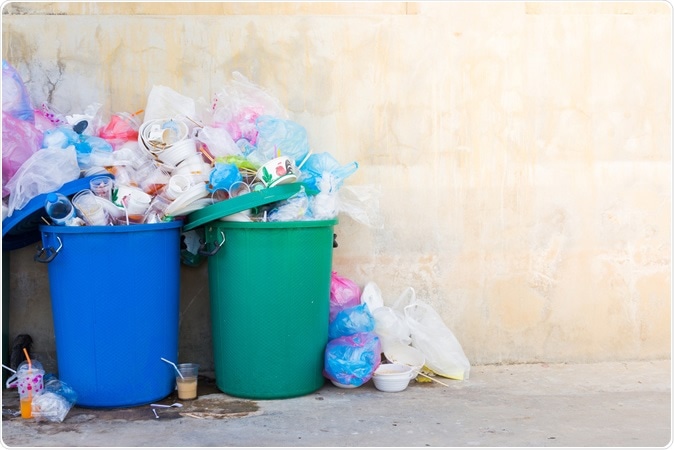Honestly, how much food do you waste at home?
A new study revealed that every person in the world is wasting about 500 calories of food a day, which is equivalent to one McDonald’s Big Mac, and the wealthiest people are the worst in wasting food.
The researchers warn that food waste by consumers in some developing countries is about to explode, as these nations become more affluent. The richer the people are in the country, such as in developed and developing countries, the more food is wasted compared to poorer countries.
Without wasted food, we could feed five instead of four people. As the money in the pockets of people increased, food waste also goes up, possibly reaching more than twice the amount that experts previously thought.

Image Credit: Fit Ztudio / Shutterstock
Study findings
The researchers from Wageningen University and Research in the Netherlands published their study in the journal PLOS ONE. They revealed that in 2005, the Food and Agriculture Organization of the United Nations (FAO) estimated that about one-third of all food available for human consumption is wasted or uneaten.
Global food waste estimates are based on this figure, but in this new study, the team was the first to investigate if how and how consumer affluence or wealth influences food waste.
Further, the authors found that once a consumer wealth or affluence reached a spending threshold of $6.70 or about $10 per capita per day, food waste starts to increase rapidly at first but slows down at higher levels of affluence.
While in some wealthy countries, $10 a day doesn’t sound like much, many countries in the Asia Pacific and more than half of Africa is below the threshold and can’t afford that much for food.
It all boils down to value for food
The reason for the discrepancy of the first estimate is that it couldn’t take human behavior into account. The team built a new model to analyze both human metabolism and the socioeconomic factors that affect food waste, which included education, income, residence, and food culture.
They also quantified consumer affluence and its effect on food waste, as well as creating an international dataset that gives estimates of global and country-specific food waste. In terms of countries, just like in human populations, the richer the country, the more food is wasted, compared to poorer countries.
More impoverished people or those with lower salaries may waste less food since they value food more. It all boils down on how you value food since food waste is a luxury, and poor people can’t afford to waste food.
Food waste a critical matter
Food waste is a serious global issue and should not be put aside since hunger is still a rampant problem in many countries. There are also the environmental impacts of food production and its land-use requirements, as well as the extra burden wasted food puts into landfills, ultimately contributing to climate change.
The work suggests that to achieve low global food waste, there should be cooperation among governments, countries, and people on reducing high food waste levels in high-income countries and avoiding waste levels to increase rapidly in lower-middle-income countries, where affluence is rising. If these poorer countries develop the same way as rich ones have in the past, it may brew a possible future problem of more significant food waste and, eventually, scarcity of essential resources.
Journal reference:
Van den Bos Verma, M., Vreede, L,m Achterbosch, T., and Rutten, M. (2020). Consumers discard a lot more food than widely believed: Estimates of global food waste using an energy gap approach and affluence elasticity of food waste. PLOS ONE. https://journals.plos.org/plosone/article?id=10.1371/journal.pone.0228369